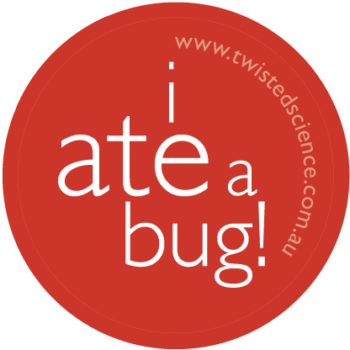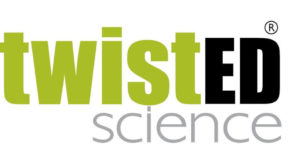I Ate a Bug
LEARNING OUTCOME
Food is everything you consume that makes your body work, grow and repair itself. Insects are a rich source of Protein. Entomophagy is the practice of eating insects.
SESSION activities
- What is food? What is protein?
- Which proteins do people eat?
- What makes up food?
- Why do we eat bugs/insects?
- Sustainability of eating insects.
SCIENCE EDUCATOR demonstrations
- How much water do we need to grow insects & animals?
- How much do of the animal/bug do we eat?
- What is an entomophagist?
STUDENT experiments
- Tasting bugs. What bugs should I eat?
POST WORKSHOP ACTIVITIES.
BIOLOGICAL SCIENCE
Australian curriculum
Yr 5-6 Living things have structural features and adaptations that help them to survive in their environment (ACSSU043)
The growth and survival of living things are affected by physical conditions of their environment (ACSSU094)
Yr 7-8 Interactions between organisms, including the effects of human activities can be represented by food chains and food webs (ACSSU112
Yr 9-10 Multi-cellular organisms rely on coordinated and interdependent internal systems to respond to changes to their environment (ACSSU175)
The theory of evolution by natural selection explains the diversity of living things and is supported by a range of scientific evidence (ACSSU185)
victorian curriculum
Yr 5-6 Living things have structural features and adaptations that help them to survive in their environment (VCSSU074)
Yr 7-8 – Interactions between organisms can be described in terms of food chains and food webs and can be affected by human activity (VCSSU093)
Yr 9-10 Multicellular organisms rely on coordinated and interdependent internal systems to respond to changes to their environment (VCSSU117)
Formulate questions or hypotheses that can be investigated scientifically, including identification of independent, dependent and controlled variables (VCSIS134)

